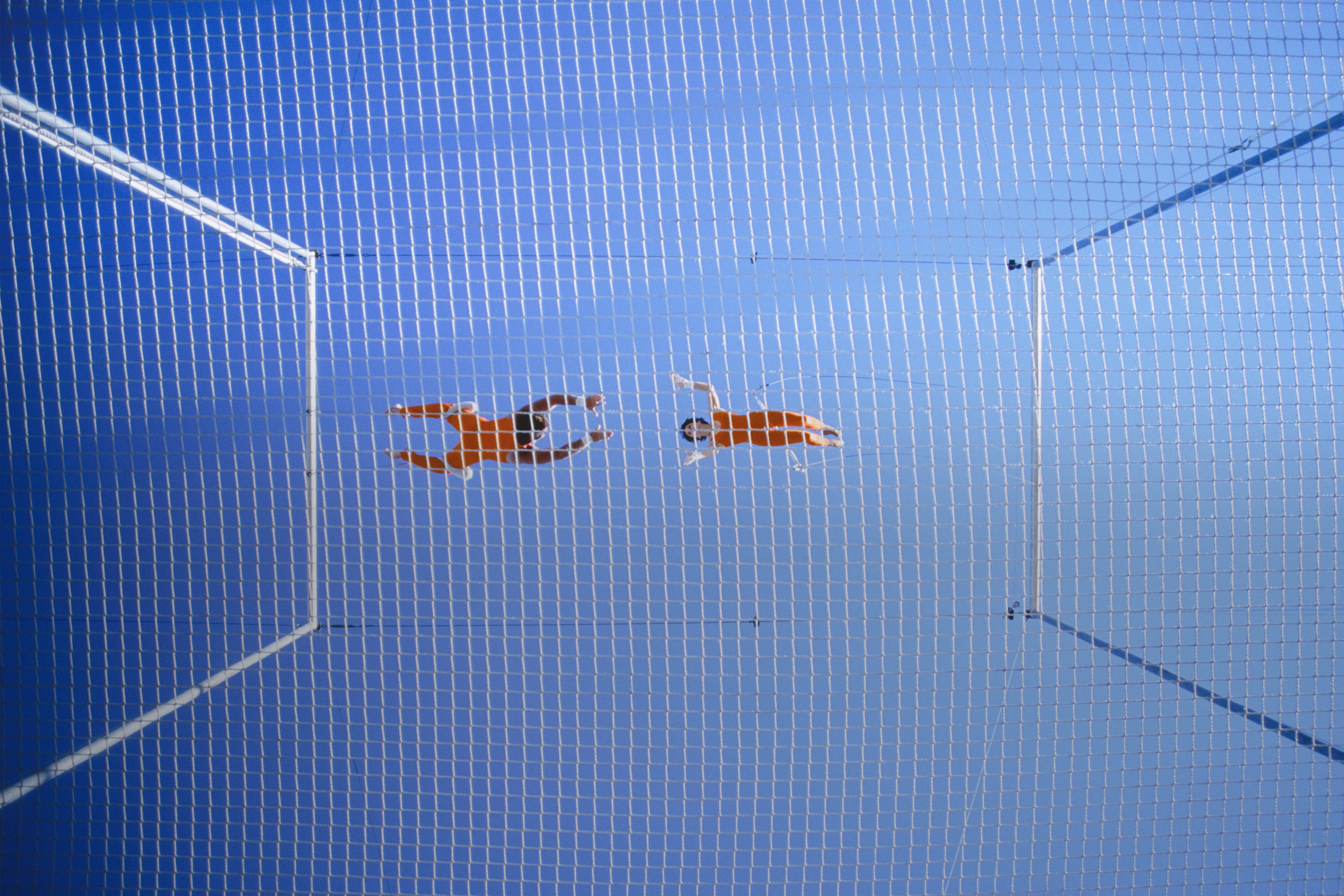EY refers to the global organization, and may refer to one or more, of the member firms of Ernst & Young Global Limited, each of which is a separate legal entity. Ernst & Young Global Limited, a UK company limited by guarantee, does not provide services to clients.

On 11 July 2022 the President of the Republic of Kazakhstan ("RK") signed the Law №135-VII "On Amendments and additions to the Code of the RK "On Taxes and other mandatory Payments to the Budget" (Tax Code)" and the Law "On the enactment of the Code of the Republic of Kazakhstan "On Taxes and other mandatory Payments to the Budget" (Tax Code)".
Some key changes, to which we would like to draw your attention to, are set out below:
1. Limitation of deductions of non-tangible services rendered by a related entity
It is stipulated that the limitation of deductions for corporate income tax ("CIT") purposes in respect of non-tangible services purchased from related non-resident entities restricted up to the total amount not exceeding 3 % of taxable income (new subparagraph 23 of Article 264 and new subparagraph 3-2 of paragraph 1 of Article 288 of the Tax Code ("TC").
The following costs of acquiring fall under the restriction: management, consulting, auditing, design, legal, accounting, advocacy, advertising, marketing, franchising, financial (except for interest expenses), engineering, agency services, royalties, rights to use intellectual property objects.
For the purposes of this restriction, interrelated parties are (1) persons specified in paragraph 2 of Article 1 of the Tax Code and (2) a legal entity that together with another legal entity is part of the same group of companies. Meantime, the tax authorities will be able to file a lawsuit in case a taxpayer does not accept the interrelation.
These amendments are effective starting from January 1, 2023.
2. Cancellation of tax benefits for dividends
In order to combat the withdrawal of capital from the country, the following benefits will be cancelled:
- Exemption from personal income tax (“PIT”) of dividends received by resident and non-resident individuals and from withholding tax (“WHT”) of dividends received by non-resident legal entities when holding shares and participation interest of companies for more than three years.
- Exemption from PIT of dividends received by resident and non-resident individuals, and from WHT of dividends received by non-resident legal entities on securities listed on the official list of stock exchanges of the RK, if such securities are not traded on the stock exchange;
The following benefits on taxation of dividends remain:
- For all recipients: Exemption from CIT, PIT, WHT of dividends on securities that are on the date of accrual of such dividends in the official list of stock exchanges operating in the territory of the RK, provided that such securities were traded during the calendar year on the stock exchange in accordance with the criteria determined by the Government of the RK (new subparagraph 4 of Article 241.2, a new version of subparagraph 7 of Article 341.1, subparagraph 3 of Article 645.9 and subparagraph 3 of Article 654 of the TC).
- For resident legal entities: Exclusion from the aggregate annual income ("AAI") of any dividends received, except in certain cases (subparagraph 1 of Article 241.1 of the TC, taking into account Article 241.2 of the TC).
- For resident individuals: exemption from PIT of dividends received from a resident legal entity for a calendar year within 30,000 times the MCI, which is about 92 million tenge or 195 thousand US dollars as of the date of this bulletin (new version of subparagraph 8 of Article 341.1 of the TC).
- For non-resident individuals and legal entities: A reduced rate of PIT and WHT in the amount of 10% instead of 15% on dividends in respect of which a full exemption was previously granted if certain conditions are met (new subparagraphs 4 and 5 of Article 646 of the TC).
3. Tax amendments for compensation during emergency situations
The new amendments include a series of changes related to the state of emergency:
- Exclusion from the AAI of the amount of money, received by small and medium-sized business entities to compensate for property damage caused during the period of the state of emergency, by decision of the commission created by the local executive body, when the taxpayer is included in the register formed by the specified local executive body (new subparagraph 28 of Article 241.1 of the TC). This change is valid from January 1, 2022, to January 1, 2023.
At the same time, for the period of validity of this change, the provisions on the application of deductions for the taxpayer's expenses that were not previously classified as deductions in connection with the loss or damage to goods will not be applied to property for which compensation was received (paragraph 3 of Article 243 of the TC is supplemented by part three).
- Decrease in the cost balance of a subgroup (group) of fixed assets by a value equal to the amount of money received in case of compensation for the value of such fixed assets in the event of loss, damage to fixed assets during the period of emergency, in connection with which the asset is derecognized in accounting (new paragraph 8 -1 Article 270 of the TC). This change is valid from January 1, 2022 to January 1, 2023.
- Payments from the budget in the form of compensation for property damage caused during the period of the state of emergency are not subject to PIT (new paragraph of subparagraph 17 of Article 341.1 of the TC). Effective from January 1, 2022.
- Introduction of an obligation for a taxpayer to compile a tax register in case of damage or loss of goods as a result of an emergency or during the period of the state of emergency (new subparagraph 7-1 of Article 215 of the TC). Effective from January 1, 2022.
4. Mineral Extraction Tax ("MET") amendments
Starting from January 1, 2023, MET rates increase for exchange metals by 50% (gold, silver, copper, zinс, aluminum) and for other solid minerals – by 30% (see Table №1 in the Appendix). MET rates for uranium in productive solution are decreased from 18.5% to 6% with a simultaneous change in the methodology for calculating the tax base (from calculation based on production cost to calculation based on spot price).
Moreover, several other amendments related to the MET have been introduced, effective from January 1, 2023:
- If the profitability level for a deposit is 5% or less, for minerals extracted from such a deposit a subsoil user has the right to apply the MET rates established as of December 31, 2022.
- The MET is calculated for the deposit at a rate of 0% within 60 months from the start of commercial production, while the following conditions are met:
- commercial production of mineral raw materials at the deposit started after December 31, 2022;
- the level of the internal rate of return on the deposit does not exceed 15%;
- the subsurface use right of the deposit is not subject to alienation during the period of application of 0% MET, except for alienation in favor of a related entity.
5. Changes regarding the payment of value added tax (“VAT”) on imported goods by the offset method
To support agricultural producers, pesticides, breeding animals of all kinds, artificial insemination equipment and live cattle are included to the list of products to which the offset method applies. This change comes into effect on January 1, 2022.
As a reminder, please note that the payment of VAT on imported goods by the offset method is a temporary support measure and applied until January 1, 2025.
An amendment was introduced regarding the period during which imported goods, to which the offset method applied, cannot be sold or transfer to financial leasing. Previous Tax Code provided for a statute of limitation period. Currently, it was replaced to 5 years to establish a uniform approach to all taxpayers. This change comes into effect on July 1, 2022.
6. Calculation of fees for digital mining
For digital mining, tax rates are set depending on the price for 1 kilowatt-hour of consumed electrical energy (new version of Article 606-3 of the TC). This change comes into effect on January 1, 2023.
7. Gradual increase in excises of tobacco products
A gradual increase in excise taxes has been introduced for tobacco products, including products with heated tobacco. As an example, for heated tobacco in 2023 the excise tax will be 9,870 tenge / 1,000 pieces, starting from January 1, 2024 - 11,130 tenge / 1,000 pieces (new version of Article 463 of the TC).
8. Setting the charge rate for non-geostationary systems
From January 1, 2023, fee rates for satellite communications using non-geostationary satellites have been established in the amount of 1 MCI (new line 9.1 of Article 595.2 of the TC).
We will be happy to discuss the impact of these amendments on your company and provide the necessary support in adapting to changes / revision of the business model in the Republic of Kazakhstan.
Appendix:Table № 1 |
||||
|---|---|---|---|---|
|
No. |
Name of minerals, mineral raw materials |
MET rates in per cents |
MET rates in per cents |
Percentage of growth (decrease) |
|
Chrome ore (concentrate) |
16,2% |
21,06% |
30% |
|
|
Manganese, iron-manganese ore (concentrate) |
2,5% |
3,25% |
30% |
|
|
1 |
Iron ore (concentrate) |
2,8% |
3,64% |
30% |
|
Uranium (productive fluid, mine method) - old version Uranium (extracted from productive fluid, mine method) - new edition |
18,5% |
6% |
(68%) |
|
|
Copper |
5,7% |
8,55% |
50% |
|
|
Zinc |
7,0% |
10,5% |
50% |
|
|
Lead |
8,0% |
10,4% |
30% |
|
|
2 |
Gold, silver |
5,0% |
7,5% |
50% |
|
Platinum, palladium |
5,0% |
6,5% |
30% |
|
|
Aluminum |
0,25% |
0,38% |
52% |
|
|
Tin |
3,0% |
3,9% |
30% |
|
|
Nickel |
6,0% |
7,8% |
30% |
|
|
Vanadium |
4,0% |
5,2% |
30% |
|
|
3 |
Chromium, titanium, magnesium, cobalt, tungsten, bismuth, antimony, mercury, arsenic and others |
6,0% |
7,8% |
30% |
|
Coking hard coal, anthracite * |
2,7% |
4,05% |
50% |
|
|
4 |
Hard coal (except for coking and anthracite), brown coal, oil shale |
2,7% |
2,7% |
0% |
* From January 1, 2023, the reduced coefficient 0.01 does not apply to extracted coking hard coal and anthracite
Authors:
- Roman Yurtayev
- Yekaterina Zhgutova
- Aliya Batyrbekova



